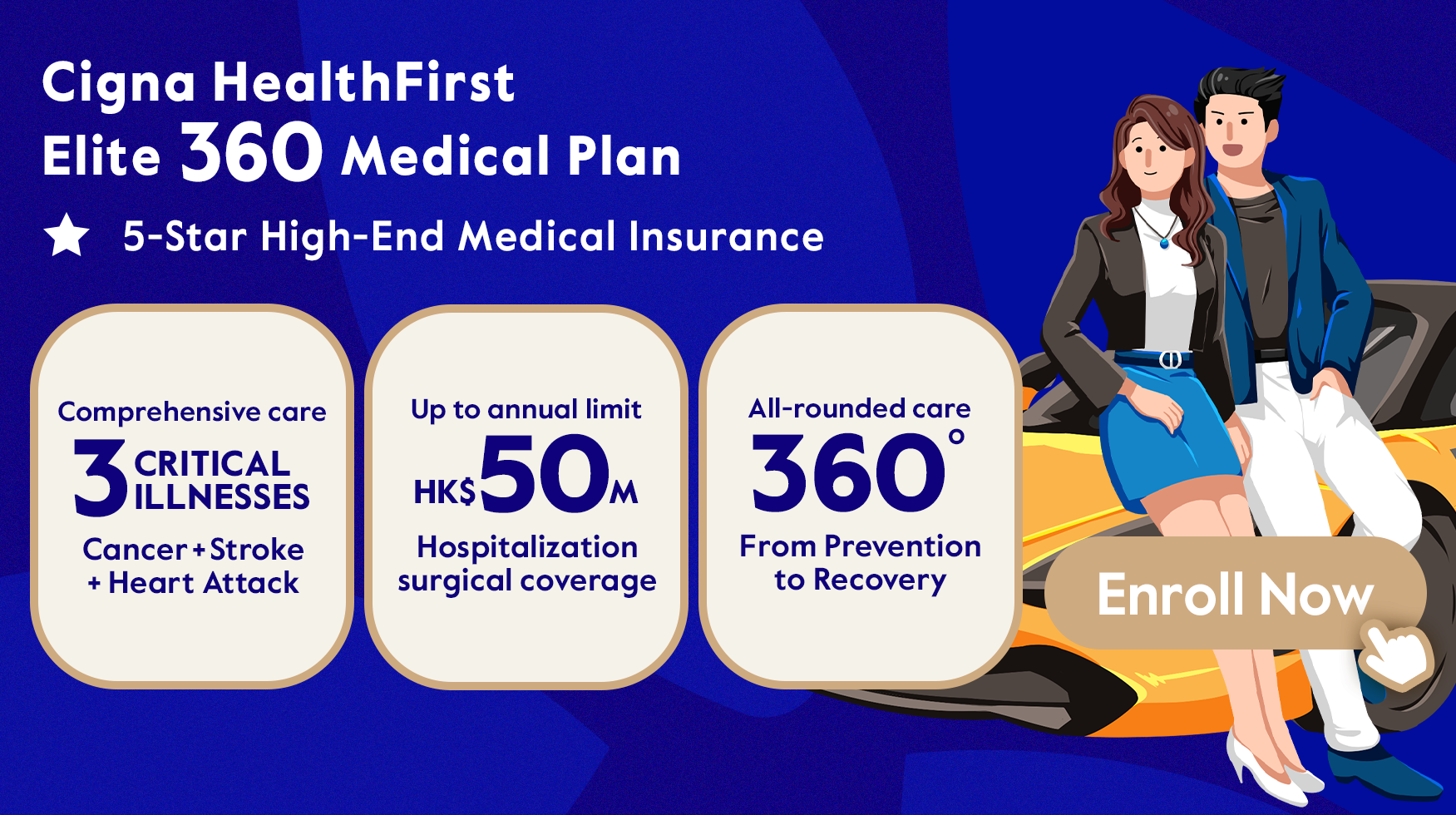Palpitations are feelings or sensations that your heart is racing or pounding irregularly. You can feel the pumping in other parts of your body, such as your chest, throat, or neck. Although you can mostly recover from palpitations in a short period of time, palpitations may sometimes be signs of some critical illnesses that you need to be careful of.
Sometimes, palpitations reflect your heart health and the risk of heart disease, which refer to a broad spectrum of heart-related conditions. Heart disease is the third commonest cause of deaths in Hong Kong, accounting for 13.2% of all deaths in 2015. Among the cases, coronary heart disease was the dominating component, making up 66.6% of heart disease deaths.
The heart is a vital organ that acts as a pump, delivering blood to the rest of the body through a network of arteries and veins. Its function is essential to life. Maintaining heart health is a key to attain complete well-being.
What Are Palpitations?
For a person with an average physique, the heartbeats 60 to 100 times per minute at rest. Palpitations refer to the conditions when your heart beats too fast, too slow or irregularly. They can be felt in your chest, throat, or neck. Some may even experience chest discomfort or pain, shortness of breath, dizziness or sweating.
Palpitations can be continuous or happen all at a sudden. They may cause more serious heart conditions if they come with other symptoms or take place for a long period of time.
Causes of Palpitations
Below are the common causes of palpitations for your reference.
|
Diet or Drugs |
Alcohol, coffee or tea, energy drinks, smoking, illegal drugs or other prescribed medications |
|
Activities and Emotions |
Strenuous exercise, staying up late, insomnia, stress, fright |
|
Cardiac Neurosis |
Patients with anxiety, panic disorder or stress disorder |
|
Diseases and Metabolic disorder |
Arrhythmia, hyperthyroidism, anaemia or valvular heart disease |
|
Other |
Pregnancy or dehydration |
When to See a Doctor For Palpitations?
Palpitations that are infrequent and last only a few seconds usually don't need to be evaluated. If you have a history of heart disease and have palpitations that occur frequently or worsen, you should seek medical advice and have a thorough check-up by your doctor. Your doctor might suggest heart-monitoring tests to see if your palpitations are caused by a more serious heart problem.
- Dizziness and fainting
- Chest discomfort or pain
- Headache and feeling weak
- Unconsciousness or confusion
- Difficulty in breathing, sweating frequently
- Pain in the arms, neck, chest, jaw or upper back
- Heart rate over 100 beats per minute
Palpitations and Other Heart Diseases
Palpitations reflect your heart health. If you are high-risk individuals, who experience persistent palpitations, you should consult your doctor as soon as possible for a detailed check-up on your heart condition. Individuals with the below conditions are at high risk.
- Arrhythmia
- Heart disease
- With defective heart valve(s)
- Bad lifestyle habits: smoking and lack of exercise
- Conditions: High blood pressure, hyperlipidemia, obesity, diabetes, lack of exercise, menopause
- Family history of heart disease
How to Prevent Palpitations
Unless you have severe heart conditions, most palpitations can be prevented through changes in your daily routine. Let’s take a look at the tips below!
- Reduce Stress
Try relaxation techniques for your body and mind, such as meditation, yoga or breathing exercise.
- Avoid stimulants
Caffeine, nicotine, some cold medicines and energy drinks can make your heart beat quickly or irregularly.
- Avoid illegal drugs
Certain drugs, such as cocaine and amphetamines, can bring on heart palpitations.
Staying positive and exercising regularly to relieve your stress and attain an equilibrium of your body and mind can prevent palpitations from happening.
Cigna HealthFirst Elite 360 Medical Plan offers comprehensive and personalized medical coverage across the stage prevention, diagnosis, treatment and recovery, with a range of hospital and surgical benefits, optional insurance benefits with an annual limit of up to HK$50 million, personalized health assessment, three critical illnesses(cancer, stroke and heart attack) all-rounded care and international medical concierge service. A 360-degree total health protection that spans across all the key stages of your health journey. Learn more here.
Cigna’s first-in-market ‘Cancer and Chronic Diseases Care Program at Home'allows you to receive treatments and medications in the comfort of your home, subject to doctor’s recommendations. The Program greatly reduces the risk of infection to you and your family members and ensures an entire focus on your treatment and well-being.


